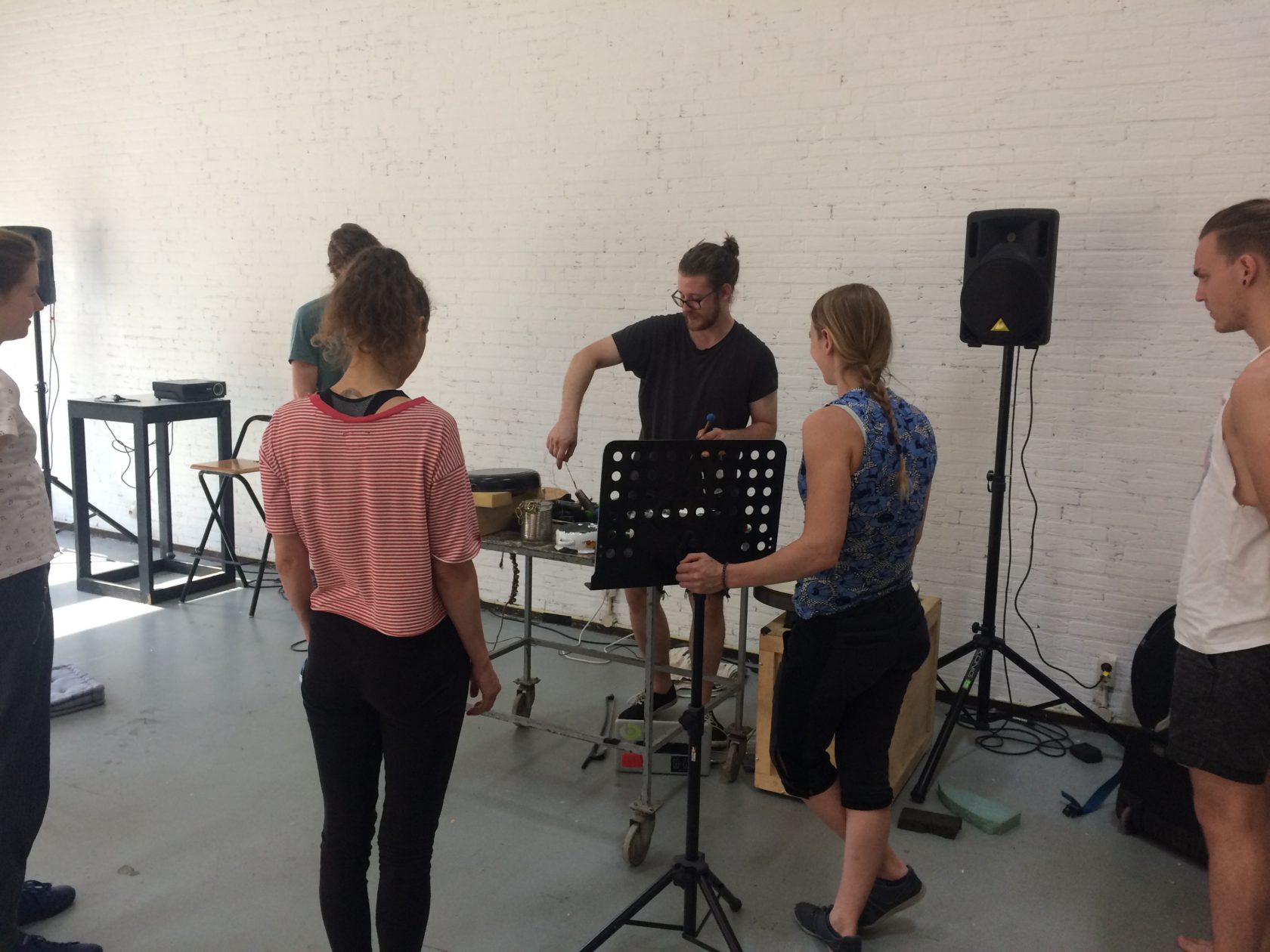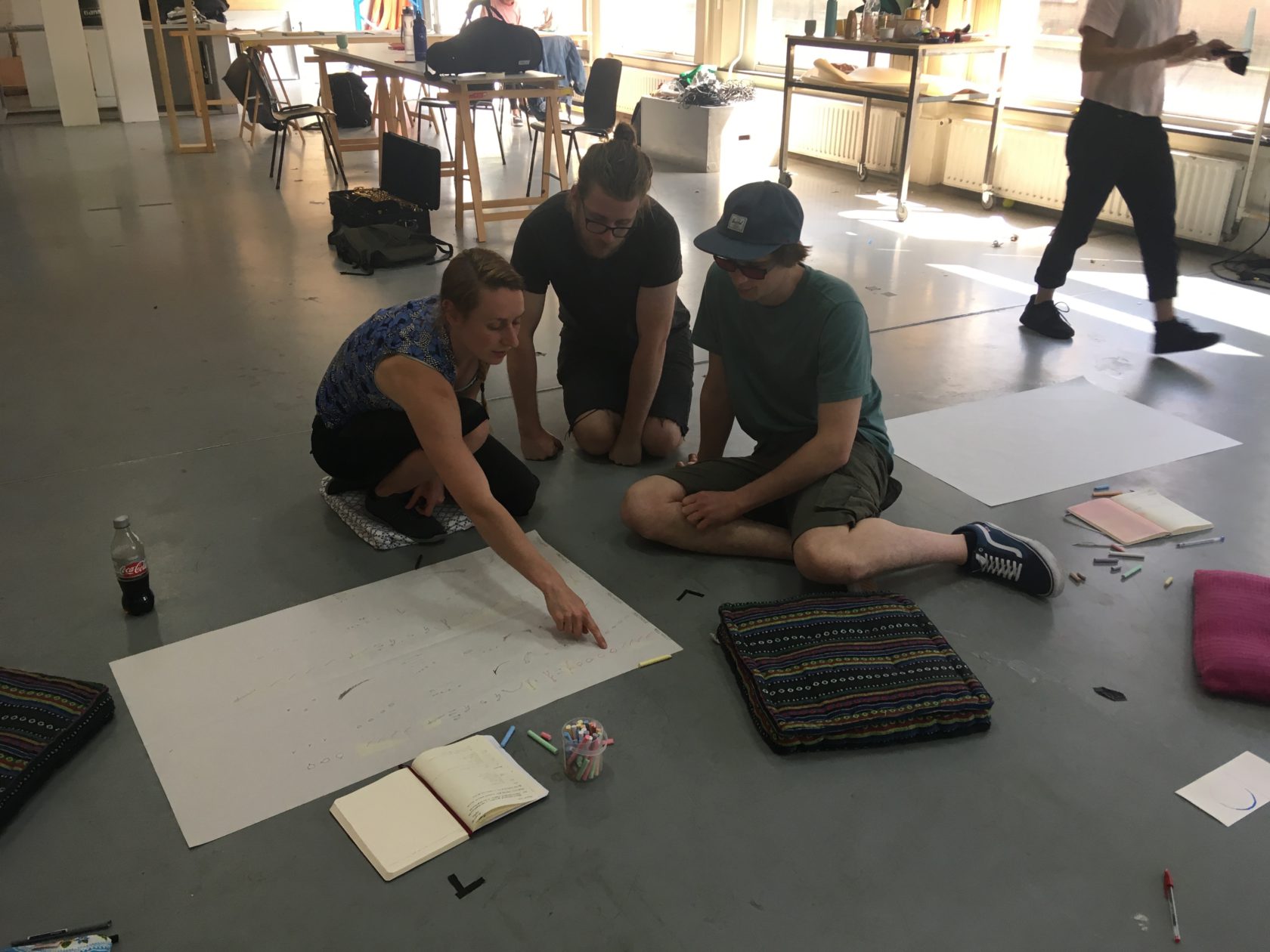Interview Natalie Fyfe & Yun Ingrid Lee for iii No Patent Pending #33
During their residency, Natalie and Yun gave a 6 day intensive score-making workshop for non-musicians titled BodyScores. Fyfe prepared a work about public speaking for the workshop, the work will also be performed at No Patent Pending #33 on May 4, 2018.
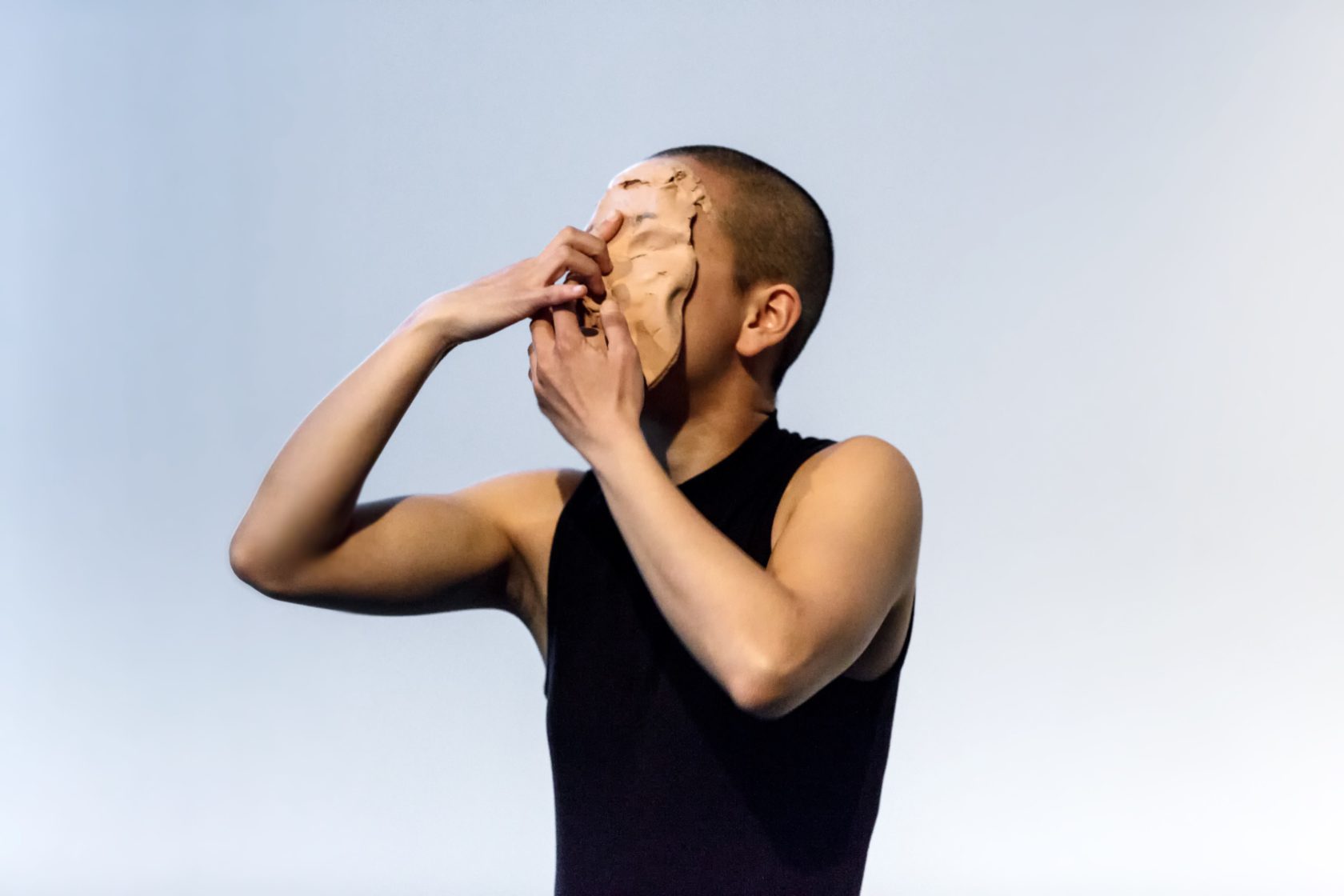
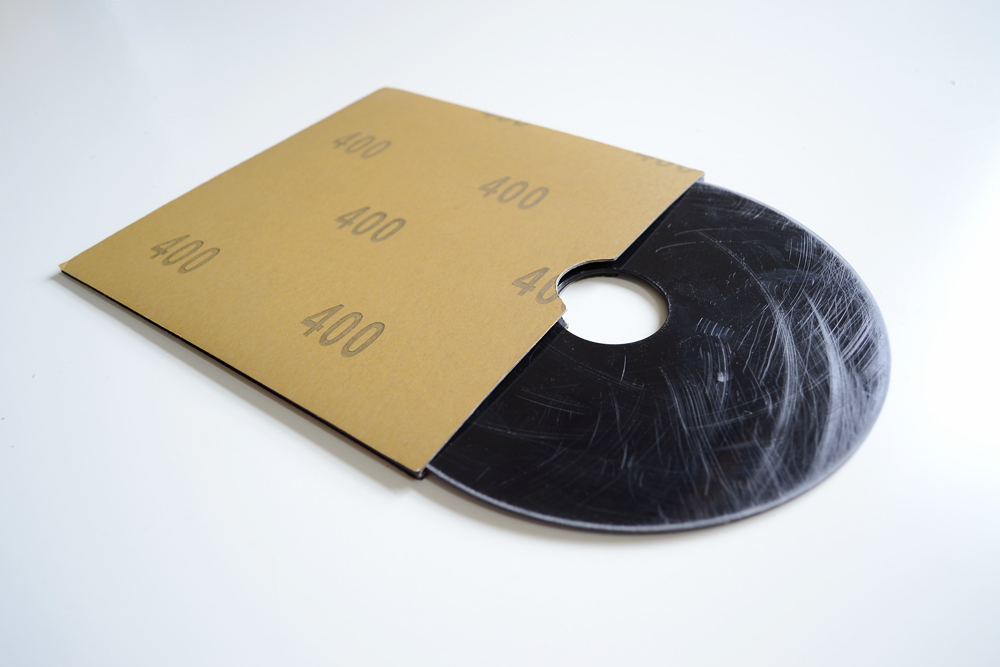
Natalie Fyfe is an artist and performer who positions herself at the border of art and music. Natalie’s works are derived from her own personal experiences with mental health but navigate towards her audience to play with expectations and perceptions.
Yun Ingrid Lee (fka Ingrid Eel) is an artist, composer, and performer interested in failure, hybridity, and collective sensing. Yun’s work investigates histories and power relations in acoustic phenomena and different media technologies.
I spoke with them on the third day of their score-making workshop BodyScores. The workshop also featured guests including composer and instrument maker Jochem van Tol, choreographer/dancer Fazle Shairmahomed, saxophonist Matt Rawlins, and percussionist Christian Smith
You've conducted a series of workshops during your residency at iii. What are these about?
Yun Ingrid Lee This is a score making workshop for non-musicians. We started off dividing each section to body parts because the participants are coming from very different backgrounds so we wanted to use something work with instruments that we were all familiar with.
What kind of backgrounds?
YL we have visual artists, dancers, composers, producers and one participant with a circus theater background.
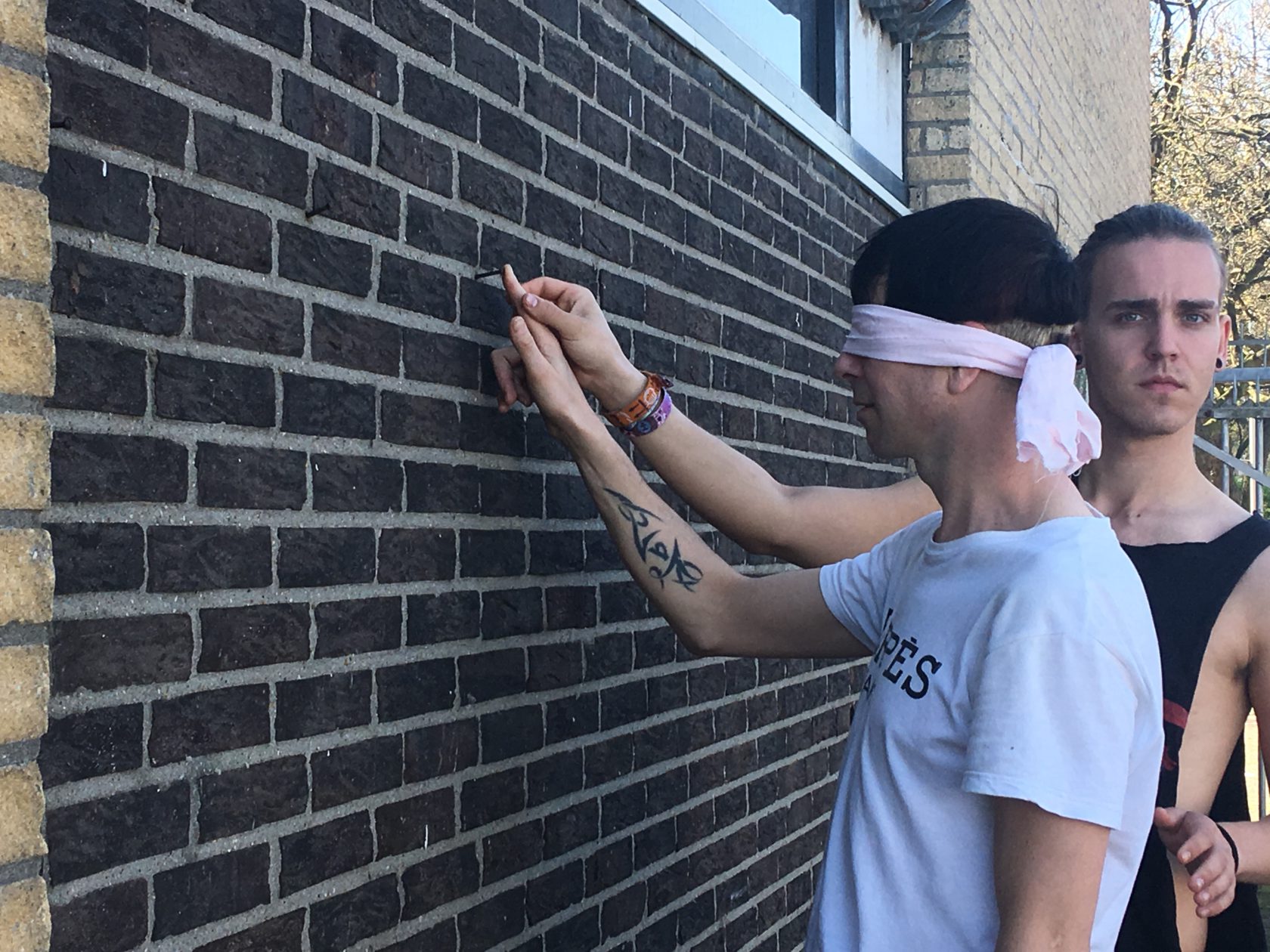
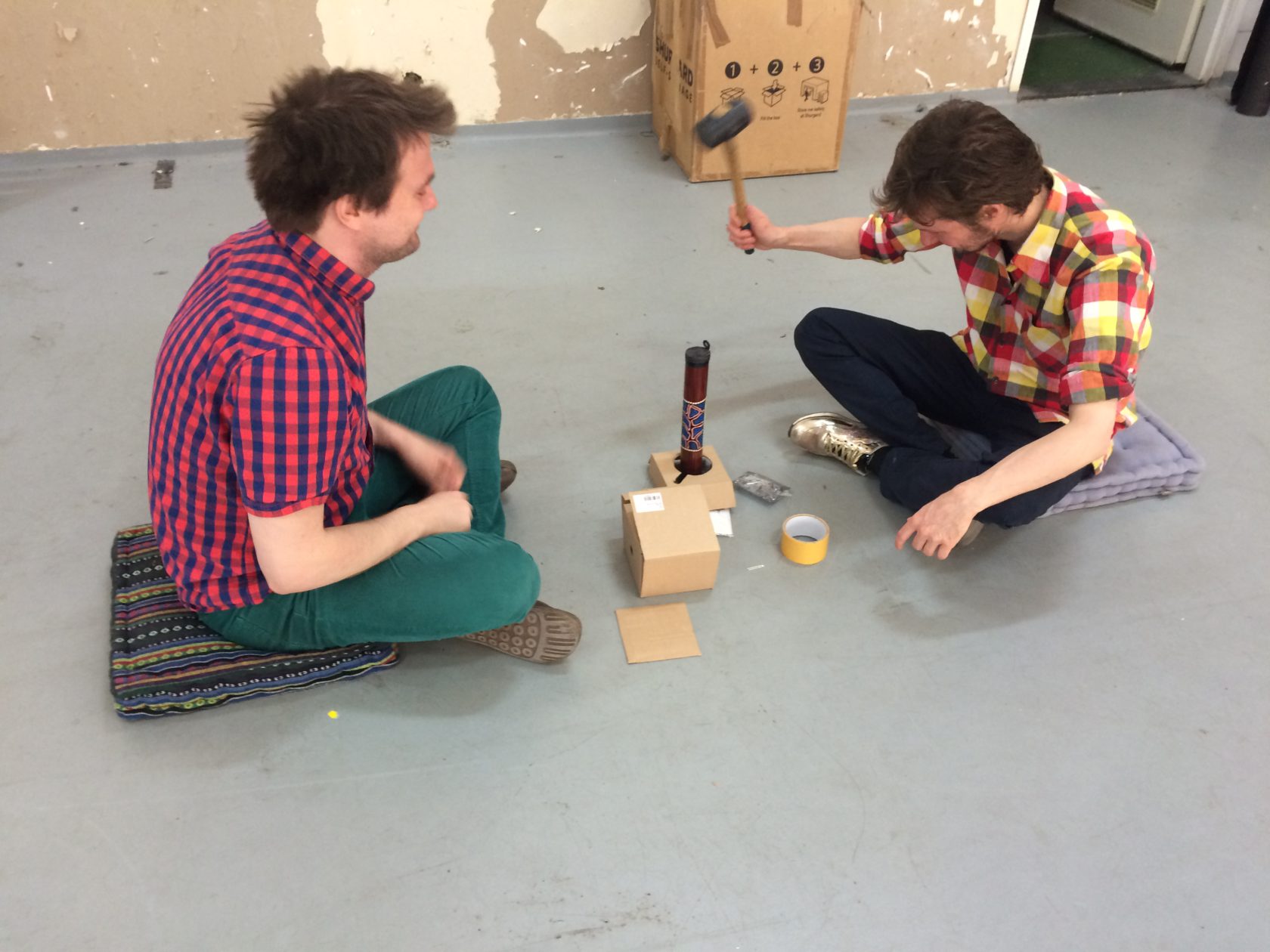
You divided the scores into limbs, how does that work?
Natalie Fyfe On day one we divided our time between skin and the mouth. In the first half of the day we started with hands gestures as a form of skin scores.
YL We started off focusing on the technique of transcription. We got people to record each other’s hand gestures and asked them to describe each other’s hand gestures. Everyone took a completely different approach, from very text based to drawings and from very descriptive to abstract. In the second half of the day they didn’t make a score for the mouth, instead, Natalie showed them a bunch of her mouth pieces and performed. It’s kind of her specialty.
NF My research is all about the mouth and the voice. It relates to finding my voice as an artist and the anxiety I have with my mouth. I showed the participants different kind of scores for one piece, and different kinds of techniques. For instance, how you can divide your mouth as an instrument into vocals and breath. In the score red are the breath and black is vocals.
YL she performed this piece at the beginning of the class on the first day. It was really cool.


How did the participants react?
NF I hate speaking in public, any kind. I decided to talk about my fear of public speaking and include the things that the mouth does, in a very subtle way and then it builds up to a performance towards the end. It is based on disturbances of speech like coughing, sighing etc.
YL in the beginning it looks like someone who is not prepared for their presentation at all. Reading like “hm… uuh… hmm.. wait.. one.. ehm… important… thing… ehm..” And at one point she spat on the floor.
NF It was about things you shouldn’t do in public. I use all the dont’s to try to amplify the fact that the mouth actually gives so much away about the speaker instead of the words themselves.
Do you tend to research your fears?
NF I tend to focus on the places of absolute discomfort. Things that make me feel anxious, all the things that I find most difficult and confront them. I try to use my fragilities as a positive, as a strength that contributes to a piece.
The first day was about skin and mouth, and then?
YL The second day was about text scores. We gave examples of scores we really liked and then we did exercises. We gave them an assignment to introduce themselves in 5 words and to write them down however they wanted to. The next day they gave it to someone else to perform. Then over time people get more and more brave..
NF We started out very subtle and we ended up with people throwing themselves across the room.
YL Then we gave them an assignment to write 3 scores of 5 lines, one for yourself, one for someone close to you and one for a stranger.
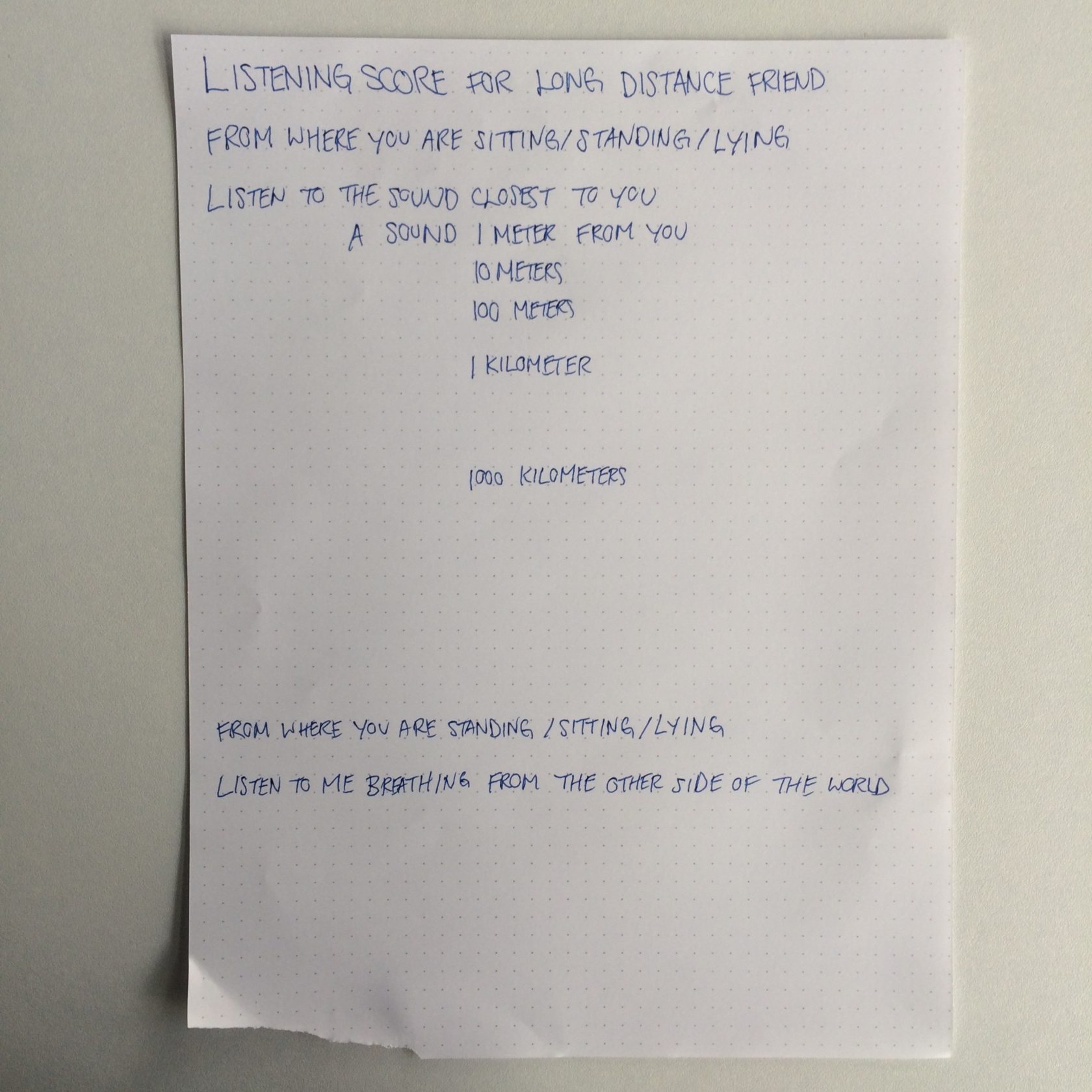
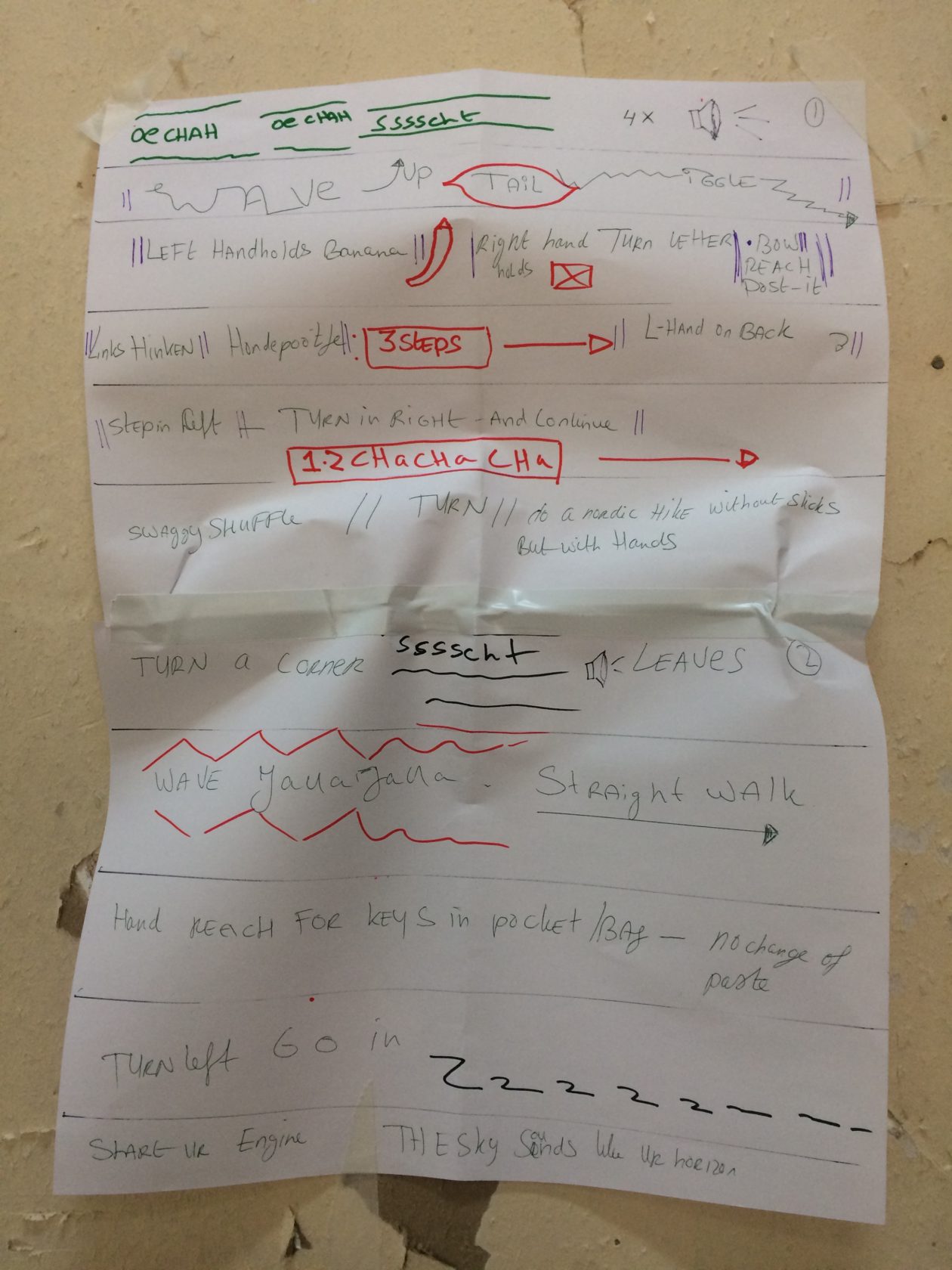
What is the difference between composing a score for a stranger instead of a loved one?
NF We had a discussion about this.
YL When I’m making a score for myself I leave a lot out, because I’m just organizing my ideas on paper. But when I’m giving it to a friend, I’m giving it to a specific friend in mind, like using a score to speak to someone. And with a stranger you can’t be so intimate perhaps.
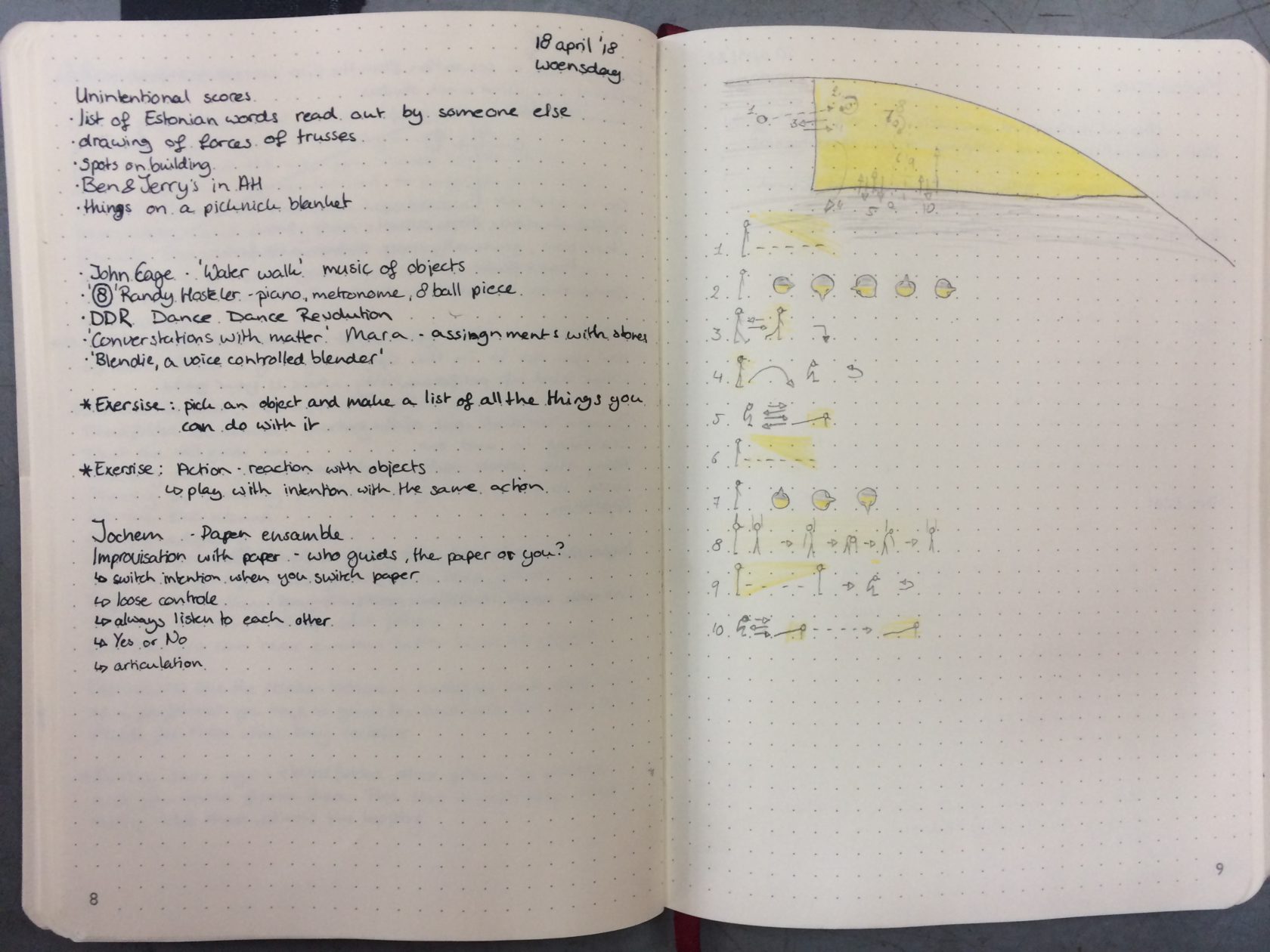
Maybe you want to speak to a loved one and want to direct a stranger?
YL + NF Both are possible. But we had a debate about it, that was very interesting. And again also very different approaches.
You're challenging them to open up, I can imagine it's intimate and intensive. And three more days?
NF Some of the participants we never met before, but we can see a little to what their tendencies are, their insecurities from the scores so far. Scores say alot about a person.
YL Today we worked with objects. It was super fun. Some things didn’t quite go as we anticipated.
NF There was a different level of concentration from working as a duo before going into a larger group object activity.
YL But people were really in playmode today. Then we asked iii resident Jochem (Jochem van Tol is an interdisciplinary artists who works across the fields of music, theatre and visual art. ) to introduce people to concepts of improvisation by using huge pieces of paper (instruments from Jochem’s Paper Ensemble).
NF Different textures, different sounds, sizes
YL In the end people composed scores using paper, helped by Jochem. At one point Jochem said “Ok lose control”. That was really difficult.
NF We also divided the group in 2, the one group was playing with the paper and the other group was watching so the assignment was “Lose control, but with an audience!”
YL We also talked a lot about the difference between composing and improvising. We agreed that composition and improvisation are not different at all; improvisation is just composition on the spot. You still have to practice these elements
NF Improvising still uses a structure and is rehearsed but you can play with timings. For me it’s about leaving space to engage and react to your audience reactions.
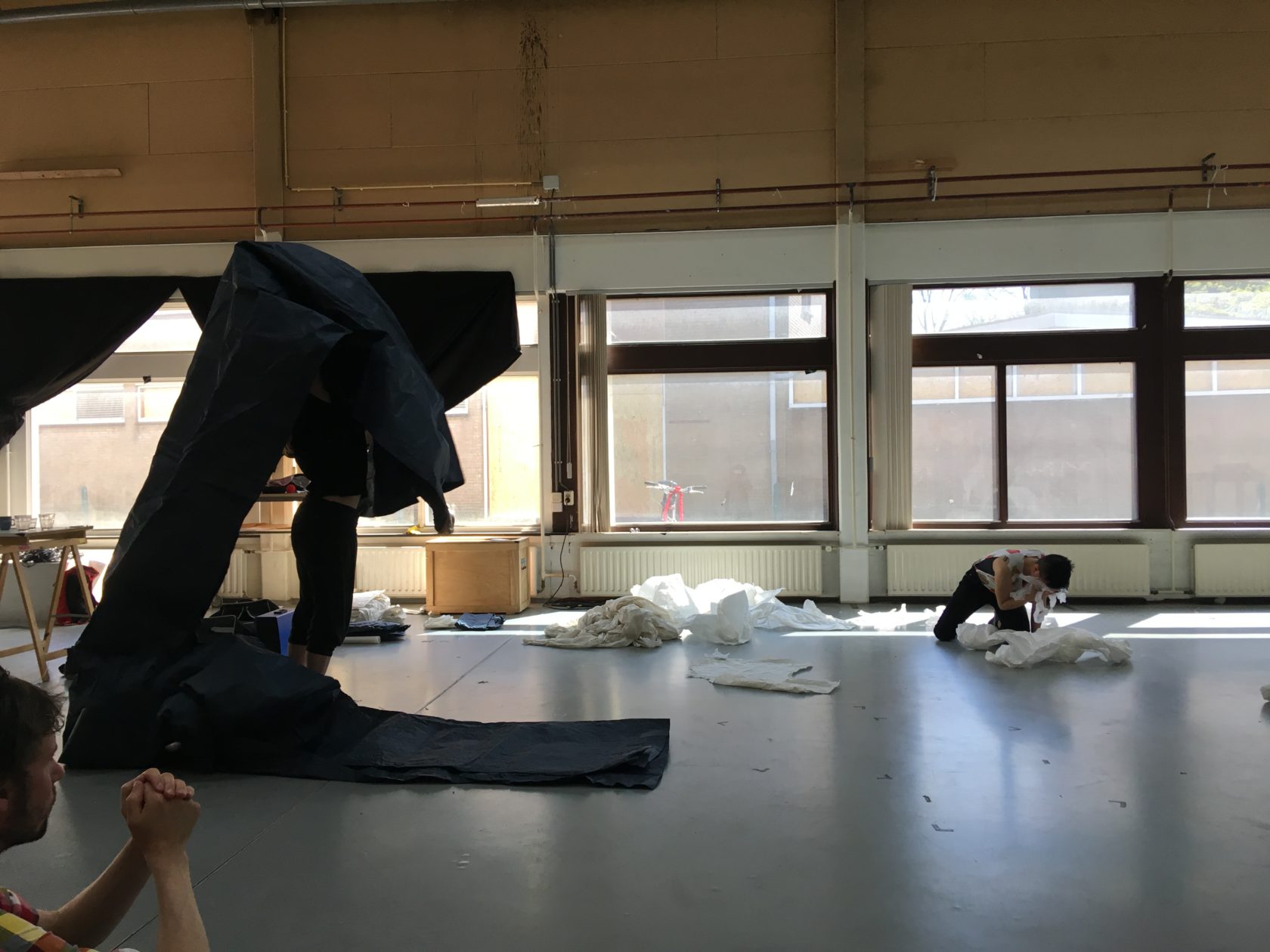
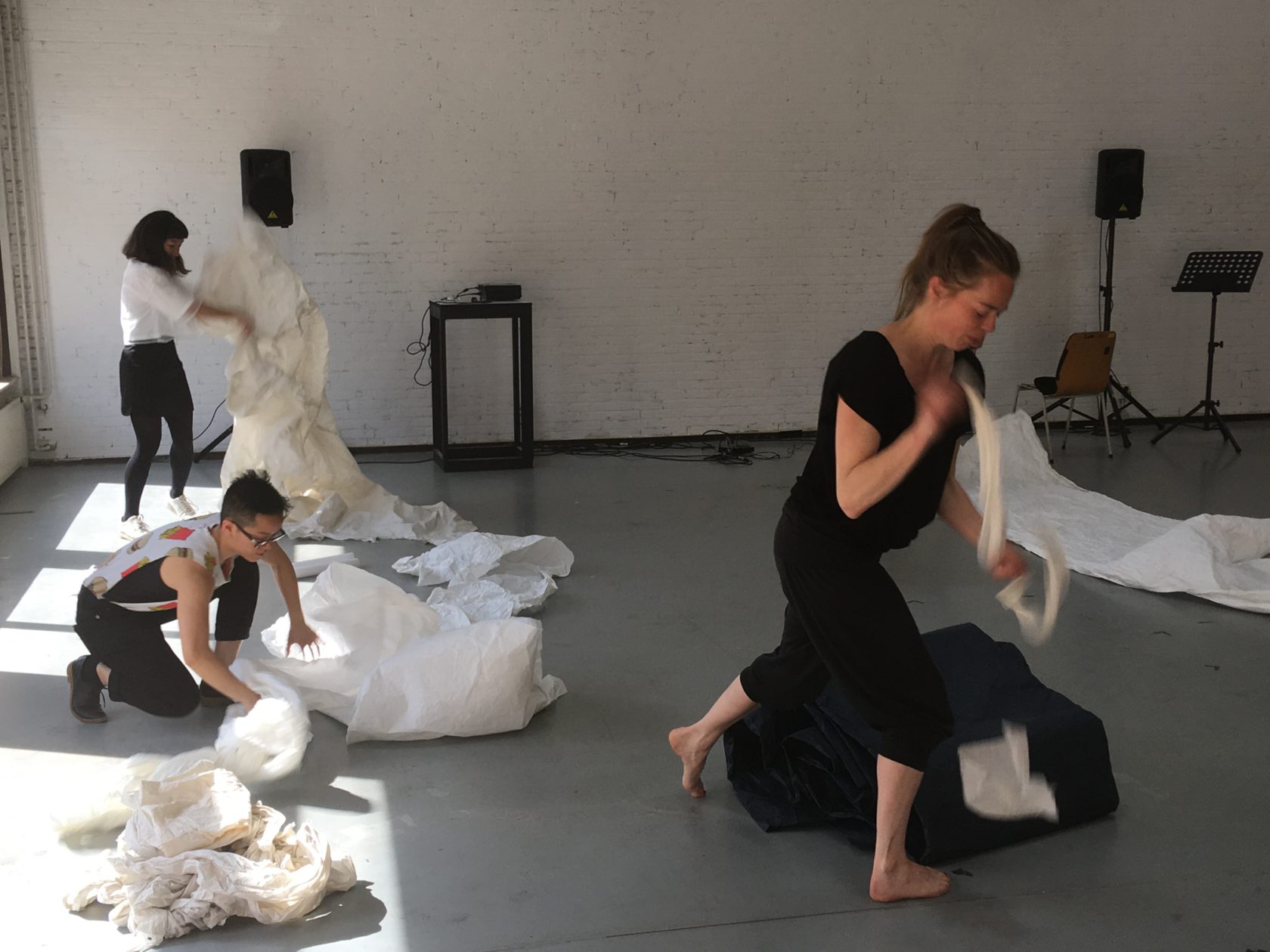
What’s your goal with the workshops?
YL I think we have different goals. For me it’s introducing a bunch of tools and thinking compositionally. Every single day we talk about very different elements of what a composition can be. It took today to talk about silence and space for instance. By the end of this course I want people to see scores everywhere. To think about what you can use scores for, not only to record your thoughts but also part of the process. It helps you organize your thoughts; it’s also a way to communicate to other people. Say you’re not always performing your own work, let’s see how it looks or sounds on someone else. Also to see how you can apply this to very different practices.
NF I don’t come from a composition background so I see this workshops as a really good opportunity for people to not only learn about different types of scores but to explore different approaches, methods and perspectives. By physically making a score you are questioning your own thought process and how it might be might interpreted by someone else. It helps with editing and intention, which are super important. The participants are kind of teaching themselves about what it is they are trying to say and discovering things that might have been overlooked.
